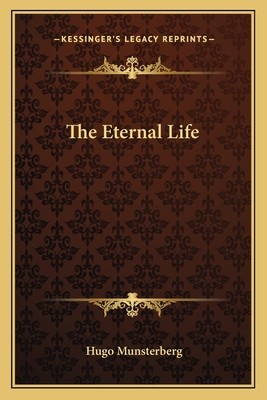
- We will send in 10–14 business days.
- Author: Hugo Munsterberg
- Publisher: Kessinger Publishing
- ISBN-10: 1162741910
- ISBN-13: 9781162741918
- Format: 15.2 x 22.9 x 0.5 cm, minkšti viršeliai
- Language: English
- SAVE -10% with code: EXTRA
Reviews
Description
1906. Munsterberg, professor of Psychology in Harvard University is considered to be the father of Industrial Organizational psychology. In his lecture, The Eternal Life, Munsterberg argues that man's life here is incomplete, and the more lofty his aims, the more worthy his labors, the more incomplete will it appear to be. The man who lives for fame, wealth, power, may be satisfied in this life; but he who lives for the ideals of truth, beauty, goodness, lives not for time but for eternity, for his ideals cannot be realized, and so his life fulfilled on this side of the grave. Unless these ideals are mocking visions, man has a right to expect the continuance of his life for its completion.
EXTRA 10 % discount with code: EXTRA
The promotion ends in 21d.23:15:12
The discount code is valid when purchasing from 10 €. Discounts do not stack.
- Author: Hugo Munsterberg
- Publisher: Kessinger Publishing
- ISBN-10: 1162741910
- ISBN-13: 9781162741918
- Format: 15.2 x 22.9 x 0.5 cm, minkšti viršeliai
- Language: English English
1906. Munsterberg, professor of Psychology in Harvard University is considered to be the father of Industrial Organizational psychology. In his lecture, The Eternal Life, Munsterberg argues that man's life here is incomplete, and the more lofty his aims, the more worthy his labors, the more incomplete will it appear to be. The man who lives for fame, wealth, power, may be satisfied in this life; but he who lives for the ideals of truth, beauty, goodness, lives not for time but for eternity, for his ideals cannot be realized, and so his life fulfilled on this side of the grave. Unless these ideals are mocking visions, man has a right to expect the continuance of his life for its completion.


Reviews